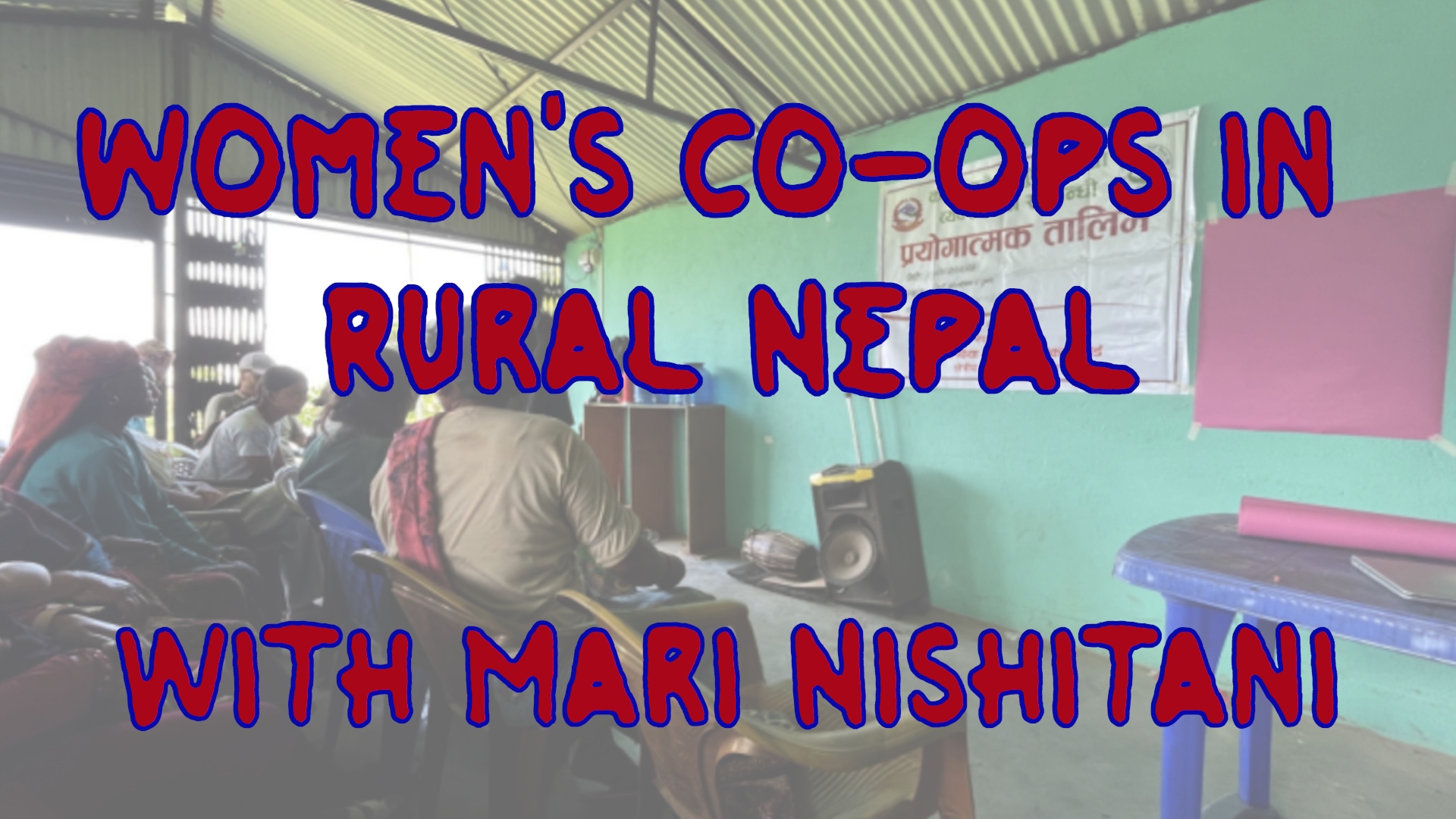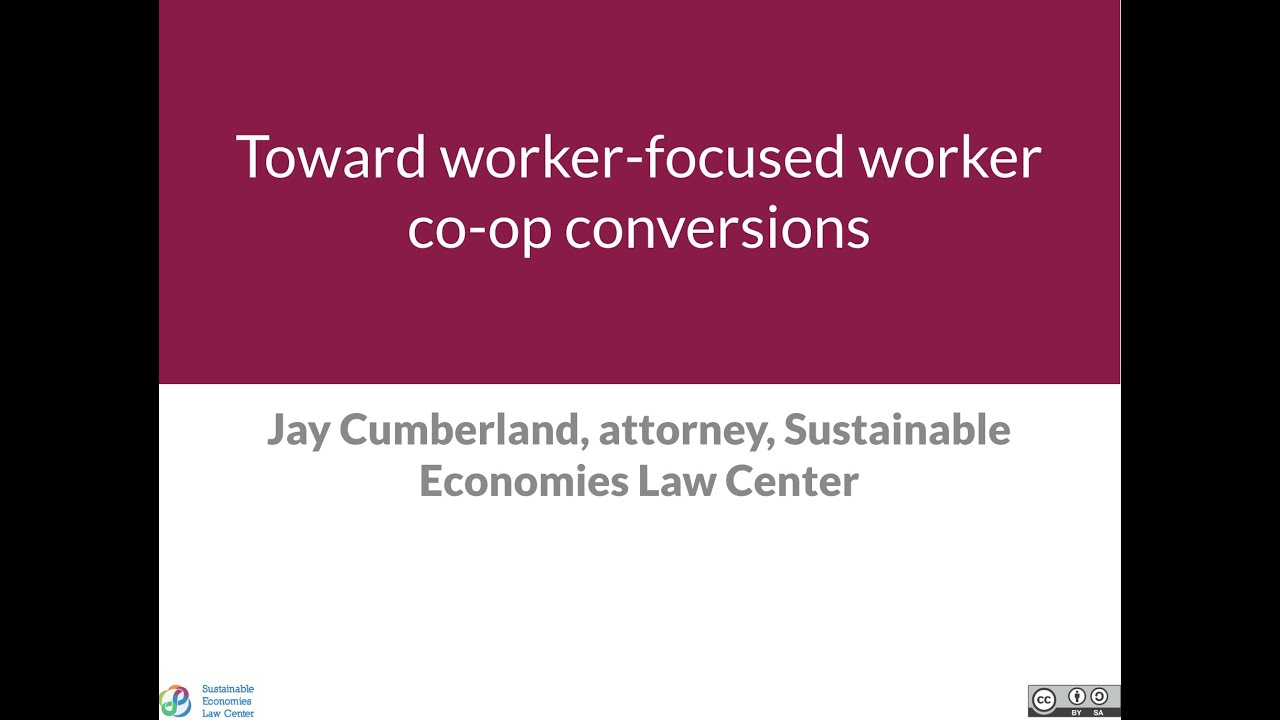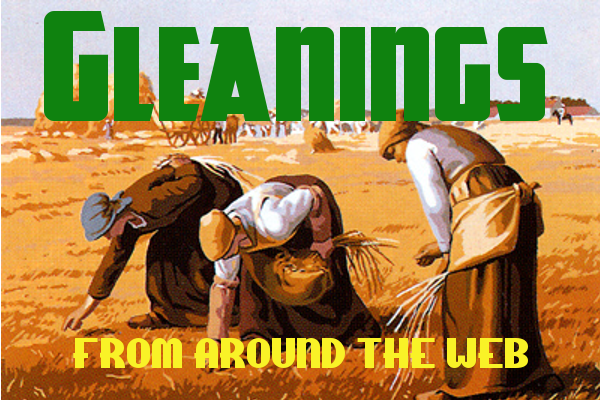This week, we talk with Mari Nishitani about her recent trip to Nepal to study two rural women's cooperatives, the Atipriya Social Entrepreneur Women’s Cooperative - started and directed by an NGO - and the Miljuli Women's Animal Husbandry and Agricultural Cooperative Organisation - a grassroots project founded by Dalit women. The differences she found between the two were stark, and show the limits of cooperative efforts led by international nonprofits.
Then, Jay Cumberland of the Sustainable Economies Law Center has what is sure to be a controversial take on worker co-op conversions that draws parallels between worker buyouts and slave self-purchase in the antebellum South.
Women's Co-ops and NGOs in Rural Nepal
by GEO Collective
Mari Nishitani talks about her co-op research trip to two villages in rural Nepal where women's cooperatives have made an impact - one founded and led by an NGO, and the other a grassroots effort led by Dalit women. Mari talks about the differences in motivation, self-determination, and adaptability between the two co-ops.
Toward Worker-Focused Worker Co-op Conversions
by The Sustainable Economies Law Center
An MCLE webinar providing political education on the history of worker co-op conversions and suggesting strategies to negotiate worker co-op conversions focused on the workers. This webinar is for lawyers interested in supporting workers in worker co-op conversions.
Crypto Companies are Eyeing Credit Unions
by Josh Davis
I failed to realize that the most obvious place for crypto to infiltrate the co-op sphere was not in worker co-ops, but in credit unions. In retrospect, this was a huge oversight on my part. Of course the funny money people would be going after our financial institutions - and it appears they've managed to hook their first big fish in the CU space.
Revolver Co-op – improving lives one cup at a time
Co-operative News — Revolver is a multi-stakeholder co-op, owned by around 500 consumers; UK retail societies including Heart of England, Central and Midcounties; a producer co-op with around 25,000 farmer members in Costa Rica, Honduras and Malawi; and a staff-owned worker co-op. Revolver products are available to buy online, from smaller worker-co-ops such as Unicorn in Manchester, to UK retail societies such as Central and Midcounties – and there are plans to expand this to all retail societies in the country...
“Guerrilla” struggles to make the Argentine economy social
Academia.edu — The organization now well known as La Alameda originated as an asamblea of residents in the neighborhood of Parque Avellaneda, which was formed during the crisis and mobilizations of the public on December 19 and 20, 2001...Until June 2002, it operated outdoors in Avellaneda Park, and focused on dealing with the pressing problems of that moment: the hunger and unemployment that had become rampant since the economic crisis and currency devaluation that had gripped Argentina...From June 8, 2002, the asamblea began to function inside a bar which it took over – a bar called La Alameda that had been abandoned and remained unused for four years. It continued its service of providing food for local residents in need, reaching up to 160 people served at each meal, and obtained the support of the City of Buenos Aires for the food, and the legalization of the community kitchen as a project of the Ministry of Social Development. Yet the asamblea had to fight against attempted eviction, and had to continue its fight in the courts to win expropriation of the site for its use as a cultural and community center.
Income-Sharing in Intentional Communities Webinar
Foundation for Intentional Community — During this webinar, Sky Blue will provide an in-depth look at the what, why, and how of income-sharing. Following the presentation, you will hear from a panel of guests who have lived in income-sharing communities including Reggie from Acorn Community Farm, Summer Tupelo from Twin Oaks Community, Michael Johnson from Ganas Community and Shawn Young from Jolly Ranchers Community...
Liberatory Principles for Mutual Aid
Agency — In post-Maria Puerto Rico, the necessity of rebuilding homes and streets, providing essentials and medication to the elderly, and helping each other overcome the trauma led to the creation of the Mutual Aid network. The need for communal spaces, internet access, activities for children in abandoned rural areas, and support for local agriculture and small traders solidified this grassroots solidarity, transforming it into established organisations that continue to operate beyond immediate relief efforts. The grassroots organisations participating in the network agreed on the principles of mutual aid, solidarity, community sovereignty, sustainability, and justice...
2025 New York Cooperative Summit
SimpleTix — The New York Cooperative Summit is a one-day event brings together New York State cooperative members, leaders, organizers, and allies to share practical tools and strategies for starting, sustaining, and scaling the co-op ecosystem across the state. In 2024 the Summit was held in Syracuse and attracted 100 attendees, and this year the event is moving to Albany and anticipating 150 people...
Like what you find on GEO?
Make a Donation Today!
Your tax-deductible contribution ensures that GEO can continue to provide independent grassroots content about the cooperative and solidarity economy movements.
Got something to say?
Let us know. Send your comments, suggestions, rants and article submissions to editors@geo.coop.
Follow us on Social Media
Mastodon: social.coop/@GEO_Collective
BlueSky: @geocollective.bsky.social
FB: facebook.com/GEOCollective
Instagram: instagram.com/grassrootsecon
Our mailing address is:
Grassroots Economic Organizing
P.O. Box 115
Riverdale MD 20738-0115





